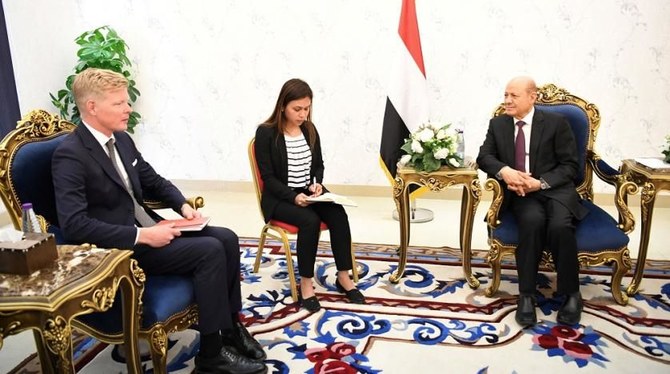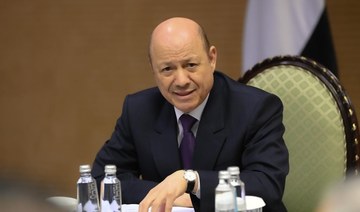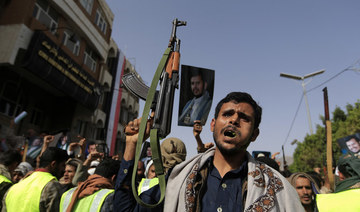AL-MUKALLA: A new military group in Yemen, the Nation Shield Force, has been created by Leadership Council President Rashad Al-Alimi as part of a push to unify armed groups and scattered units throughout government-controlled territories.
The official news agency SABA reported on Sunday evening that Al-Alimi issued a presidential order establishing the Nation Shield Force as reserve troops under his command and naming a little-known military officer, Brig. Basher Saif Qaid Ghobair Al-Subaihi, as the unit’s commander.
SABA said that the Yemeni leader will issue another decree specifying the number, purpose and deployment location of the forces.
Al-Subaihi was among thousands of Yemenis who fought against the Iran-backed Houthis during the militia’s 2015 conquest of the southern port city of Aden.
Officials and experts in Yemen said that resistance fighters as well as military and security forces that fought against the Houthis would be recruited and given formal military training, and ranks in the new unit.
Brig. Gen. Mohammed Al-Kumaim, a Yemeni military analyst, told Arab News that the new unit will incorporate active military and security forces on the ground, as well as units from military zones, adding that the procedure is part of a strategy to give active units on the ground legitimacy and unite them under the leadership of the country’s institutions.
“These forces are not new and are already present on the battlefield. This is in accordance with the Yemeni Ministry of Defense’s reorganization, repositioning and reorganization of its military,” Al-Kumaim said, adding that troops in the new unit will take part in military action against the Houthis across Yemen.
Al-Kumaim refuted opponents who said that the Yemeni leader is attempting to build a force under his command to compete with the private militaries of other council members.
“As commander-in-chief of the Armed Forces, he commands all forces on the ground and has the authority to form any new forces. There is no competition,” Al-Kumaim said.
In an interview with Al Arabiya TV last month, Al-Alimi said that the council’s priority is on consolidating multiple military groups under a single command center, conceding that merging forces under the Defense Ministry may not occur in the near future.
In April, former president Abed Rabbo Mansour Hadi transferred his authority to the eight-member Presidential Leadership Council, led by Al-Alimi. It includes military and political officials and numerous provincial governors such as Aidarous Al-Zubaidi, the president of the pro-independence Southern Transitional Council; Tareq Mohammed Abdullah Saleh, the commander of Republic Guards forces; Abdul Rahman Al-Muharami, the commander of the Giants Brigades; and others.
Meanwhile, the Consultation and Reconciliation Commission, an advisory body to the Presidential Leadership Council, advised the Yemeni government to work toward achieving peace in Yemen and addressing the country’s economic woes, while cautioning against legitimizing the Houthi military takeover in any direct talks with the militia.
“We emphasized the need for thorough and direct political dialog between the legitimacy headed by the Presidential Leadership Council and the Houthi militia based on legitimacy and the coup,” Mohammed Al-Ghaithi, the body’s leader, said on Twitter after a virtual meeting with other members on Sunday.













